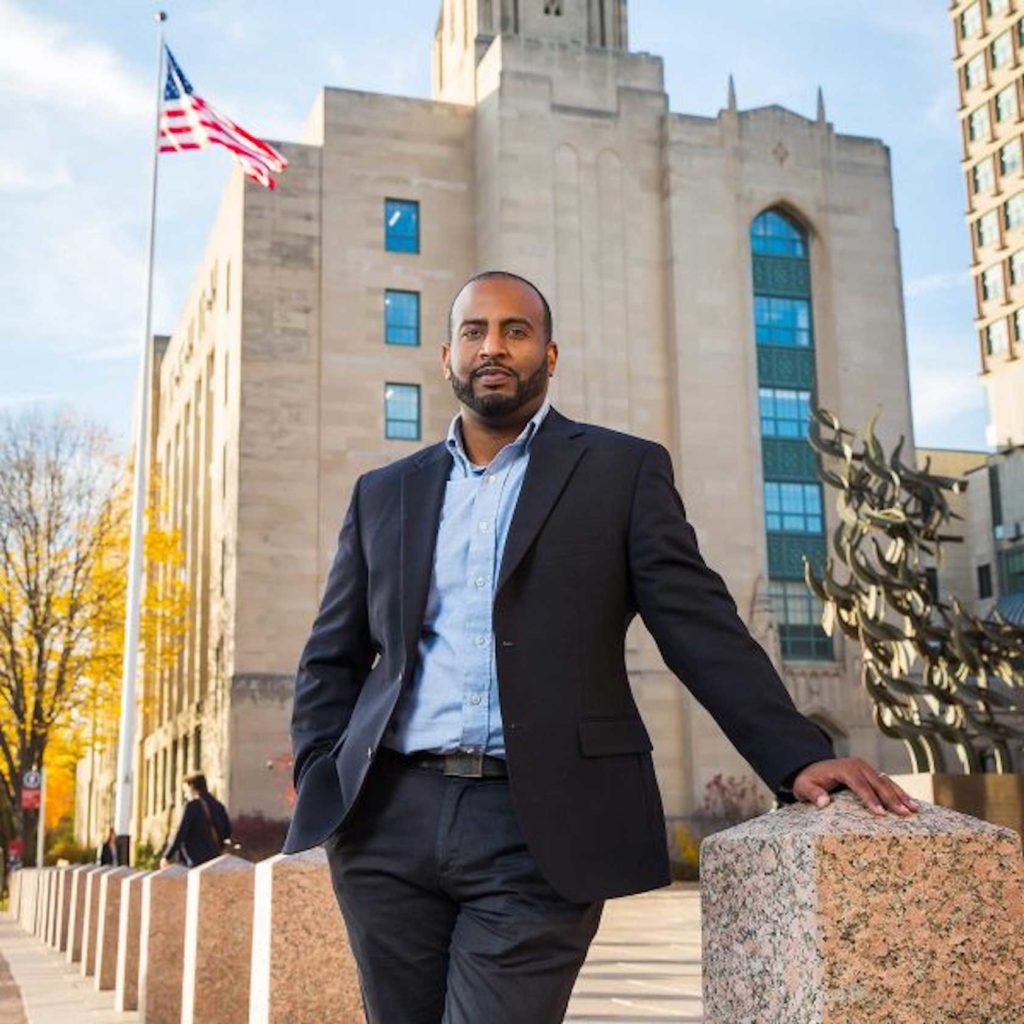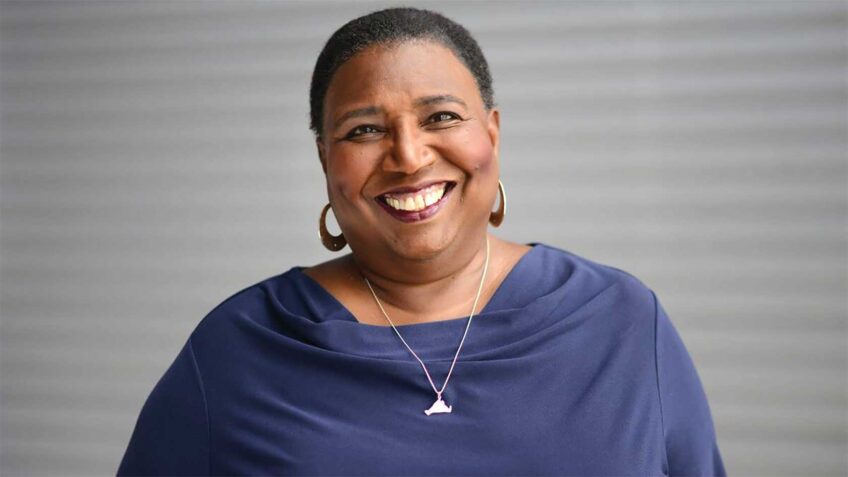Ethiopia’s civil war engulfs civilians in crisis
Local Ethiopians see peril as humanitarian crisis worsens

As the world focuses on mounting casualties in Ukraine, a real-time humanitarian tragedy in Ethiopia is playing out with barely any media coverage or foreign aid to relieve the crisis.
Ethiopia has been at war with itself for 18 months, prompting a mass exodus, thousands of casualties, and a famine that has left millions without food. The crisis stems from Prime Minister Abiy Ahmed’s 2020 decision to enlist forces from both the Ethiopian military and neighboring Eritrea to oust a rival party from control of the province of Tigray in the north of the country.
Nearly 2.4 million people have fled the conflict in Africa’s second most populous nation. Rising food shortages and mounting civilian and military casualties in one of the largest and most powerful African economies have prompted protests around the world.
Some of those protests have been in Boston, home to about 12,000 Ethiopians.
“It’s been an absolutely brutal conflict,” said Michael Woldermariam, the son of Ethiopian immigrants and the director of Boston University’s African Studies Center. “The costs of this war are astronomical — politically, economically, socially.”
Hilary Matfess, a professor formerly affiliated with the center, expressed little faith in the will of Ahmed’s government to address the crisis. “I would also just point out that there was a real sense of optimism about what the rise of Abiy Ahmed meant for Ethiopian politics, that, in retrospect, was a little naive,” he said.
Amnesty International and Human Rights Watch have jointly accused the Ethiopian government of crimes against humanity. A 207-page report by the agencies details incidents of perceived ethnic cleansing against the Tigrayan population. The many accounts of alleged crimes include the one of a 39-year-old farmer attempting to flee the village of Bereket with his three children. The man, deliberately targeted with heavy weapons by soldiers, nearly died from shrapnel injuries.
“The organizations found that since November 2020 in Western Tigray, civilian authorities, and Amhara regional security forces, with the acquiescence and possible participation of Ethiopian federal forces, committed numerous grave abuses as part of a widespread and systematic attack against the Tigrayan civilian population that amount to crimes against humanity as well as war crimes,” the report concluded.
For its part, the Abiy government has denied accusations of war crimes, calling charges of civilian atrocities and ethnic cleansing “completely unfounded and spurious.”
The Human Rights Watch/Amnesty International report calls for a ceasefire as an immediate but temporary solution to amend the tensions in Ethiopia, but Abiy, having successfully deployed fleets of armed drones to drive back rebels in recent months, seems disinclined to hold back efforts to regain territory.
A mediation team from the African Union, headed by former Nigerian President Olesegun Obasanjo, has made little progress in trying to end the conflict, which has spilled across borders and put resources in jeopardy, including a recent hydroelectric dam built on the Upper Nile.
The war began in November 2020, but tensions between Tigray and the central government, dominated by Ethiopians of Amhara descent, run deep in the country. Amhara rulers ascended to the throne of Ethiopia in 1000 B.C. and held power for nearly 3,000 years until the last emperor, Hailie Selassie, was overthrown in a socialist coup in 1974.
The current conflict stems from a falling out between Abiy’s government in Addis Ababa and the Tigray People’s Liberation Front (TPLF), which dominated the country for 30 years before Abiy’s election in 2018. A former intelligence officer and a minister in the TPLF government, Abiy sought to reduce Tigrayan influence after he came to power.
During the 2018 political campaign, Ahmed promised unity and an end to discord. He famously won the Nobel Peace Prize in 2019 for reaching a peace accord with neighboring Eritrea, long a rival for dominance in the arid region.
Two months before the conflict broke out, Abiy cancelled regional elections in Tigray, citing unlawful challenges to the government, but the province moved ahead with balloting. Citing rebel activity, Ahmed ordered a pre-emptive military offensive against the Tigrayan opposition. The campaign enjoyed initial success before suffering heavy losses in a massive counter-offensive by veteran Tigrayan fighters who have long dominated the nation’s military forces.
Woldermariam, who focuses his work on conflict in the Horn of Africa — a huge eastern swath of the continent encompassing Ethiopia, Eritrea and Somalia and parts of neighboring Sudan — has closely followed the war since its start.
In the beginning, he said, “Tigrayans were really on the backfoot. The federal government, its Eritrean allies, associated allied Amhara militia had the military upper hand. Then the Tigrayans launched their own military offensive, which was met with a counteroffensive … the military story is extremely complex, even though the fighting is static.”
But civilian suffering continues, with millions facing famine in the absence of seed and fertilizer during the planting season. Ethiopia, a landlocked country more than 60% larger than Texas with a population of 115 million, has suffered devastating consequences in every corner of its territory.
In addition, Human Rights Watch documented that “for the many Tigrayan men, women, and children who remained behind in Western Tigray, the abuses did not stop after federal and allied forces established control” of the region.
Matfess said that Abiy has raised the stakes of the conflict by becoming a visible symbol of the government’s military campaign. “In the beginning of the conflict, there was a sense of distance, but as a part of this nationalization campaign, Abiy Ahmed himself … has now reportedly gone to the front lines,” said Matfess.
Cippara Abraham, the daughter of Ethiopian immigrants, accused the Abiy government of perpetrating atrocities against civilians. “There are so many unnecessary deaths attached to this war, and the acting Ethiopian government under Ahmed unfortunately has a lot of that blood on its hands,” said Abraham, 18, during an interview last week at the Ethiopian Community Center in Cambridge.
“Nowhere on earth is the health of millions of people more under threat,” said Dr. Tedros Adhanom Ghebreyesus, director general of the World Health Organization, citing close to 100,000 combat deaths, 200,000 deaths from starvation and more than 100,000 from lack of medical attention.
In stark contrast to the massive media coverage of the war in Ukraine, the conflict in Ethiopia has received little attention. Nations from around the world have poured resources into Ukraine as well, while millions of Ethiopian civilians are facing imminent death from starvation.
“People are dying on a massive scale, and barely anybody is talking about it,” said Abraham.
Suffolk University student Christy Gebeyaw, also interviewed in Cambridge, said the war has deeply affected every citizen of the country. She encouraged local students to begin conversations about the war and the humanitarian crisis, pleading that they “spread awareness of the issues.”






